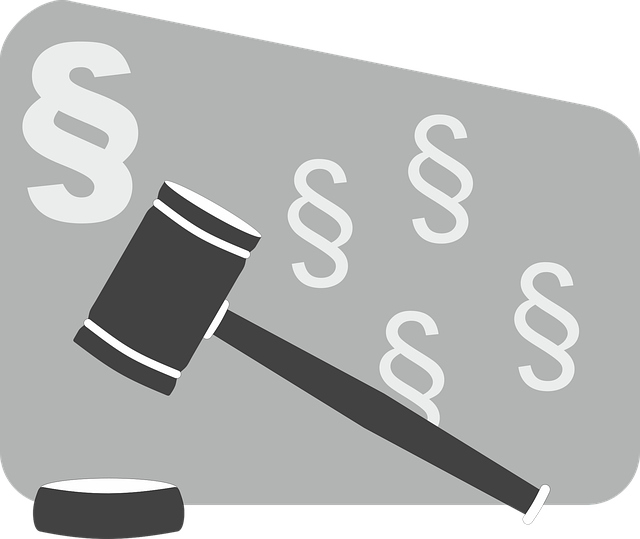RF Regulatory Agency investigations uphold standards, ensure public safety, and promote fair competition through technical analysis, data assessment, and expert opinions. Guided by case studies in Securities Exchange Regulation, these inquiries can lead to penalties or dismissal based on compliance or deliberate violations. The process influences business outcomes, ethical guidelines, and community trust, with case studies playing a vital role in understanding regulatory nuances and deterring non-compliance. These investigations also impact securities markets, shaping corporate governance and setting precedents through jury trials. Strategic navigation involves meticulous record-keeping, proactive measures, and aligning policies with relevant case studies to prevent regulatory issues.
“RF Regulatory Agency Investigations: Unraveling Complexities and Market Impact
Regulatory bodies play a vital role in ensuring fair practices, especially in the realm of radio frequency (RF) technologies. This article delves into the intricacies of RF agency investigations, shedding light on their significance and effects on the securities markets. We explore common triggers for these inquiries and uncover the power of case studies in shaping security exchange regulation. Furthermore, best practices are highlighted to guide companies through these audits, ensuring compliance and minimizing market disruptions.”
- Understanding RF Regulatory Agency Investigations
- Common Grounds for RF Agency Inquiries
- The Role of Case Studies in RF Regulation
- Impact of Investigations on Securities Markets
- Best Practices for Navigating RF Regulatory Audits
Understanding RF Regulatory Agency Investigations

RF Regulatory Agency Investigations play a pivotal role in ensuring compliance with radiFrequency (RF) standards, safeguarding public safety, and maintaining fair competition in various industries. These investigations are meticulously designed to delve into potential violations, ranging from unauthorized RF transmissions to interference with critical infrastructure. By examining technical aspects, agency investigators analyze devices, networks, and operations to identify non-compliance. This process often involves complex data analysis, on-site inspections, and expert testimony, drawing on a wealth of knowledge in case studies spanning the Securities Exchange Regulation and beyond.
Understanding these investigations requires recognizing their impact on both businesses and the broader community. The outcome can range from a complete dismissal of all charges for firms with strong compliance records to stringent penalties for those found guilty of deliberate violations. This dynamic is further influenced by the ethical considerations that guide such inquiries, particularly in dealing with sensitive data and ensuring due process. Moreover, the results extend beyond legal consequences, as they shape the trust within philanthropic and political communities, underscoring the importance of responsible RF usage in our interconnected world.
Common Grounds for RF Agency Inquiries

RF Regulatory Agency investigations often stem from several common grounds. These include suspected violations of communication standards, unauthorized use of radio frequencies, and potential interference with critical infrastructure. By examining case studies in securities exchange regulation, we see that regulatory bodies actively monitor all stages of the investigative and enforcement process to ensure compliance. This involves meticulous data collection, analysis, and interpretation to identify anomalies or non-compliance with existing laws and regulations.
In many instances, these inquiries lead to jury trials where general criminal defense strategies come into play. The complexity of RF investigations necessitates a comprehensive approach that balances technical expertise with legal acumen. Understanding the nuances of both the technology and the law is crucial for navigating the intricacies of these cases, which often have significant implications for businesses and individuals alike.
The Role of Case Studies in RF Regulation

In the realm of RF regulatory agency investigations, case studies play a pivotal role in shaping industry practices and ensuring compliance. These in-depth analyses provide a unique lens through which regulators and stakeholders can understand complex regulatory issues. By examining real-world scenarios, from licensing disputes to signal interference cases, case studies offer valuable insights into the nuances of RF regulation. This approach enables regulators to identify patterns, predict potential violations, and develop effective enforcement strategies, ultimately fostering a more robust and fair market environment.
Moreover, case studies in RF regulation serve as a powerful tool for education and prevention. They highlight successful investigations, showcasing an unprecedented track record of identifying and addressing non-compliance. This approach not only deters current bad actors but also guides corporate and individual clients towards adhering to regulatory guidelines, thereby avoiding potential indictments and ensuring sustained industry growth.
Impact of Investigations on Securities Markets

RF Regulatory Agency investigations have a profound impact on securities markets, acting as a crucial check on corporate governance and financial practices. When regulatory bodies uncover misconduct or violations, it can lead to significant changes in market dynamics. Case studies in securities exchange regulation reveal that these probes often result in substantial fines and penalties for offending companies, influencing investor sentiment and potentially triggering market corrections. The repercussions extend beyond the fined entity, as similar investigations can create a ripple effect, prompting other firms to enhance their internal controls and compliance measures to avoid similar fates.
Moreover, these investigations shape the landscape for white-collar defense strategies. Companies and individuals face not only financial losses but also reputational damage, which can affect their standing in philanthropic and political communities. Jury trials arising from such cases further amplify the impact, with verdicts setting precedents that guide future regulatory actions and market behaviors.
Best Practices for Navigating RF Regulatory Audits

Navigating RF Regulatory Audits requires a strategic approach to ensure compliance and mitigate risks. First, organizations should maintain detailed records and documentation of all radio frequency (RF) operations. This includes system configurations, maintenance logs, and user training materials. By keeping these records up-to-date, companies can demonstrate their adherence to regulatory standards during audits. Additionally, conducting regular internal audits and assessments can help identify potential issues before external regulators detect them.
Case studies in the securities exchange regulation highlight that proactive measures are key. Organizations should establish clear policies and procedures for RF usage, ensuring they align with relevant regulations. Training employees on these protocols is essential, especially for corporate and individual clients facing white-collar and economic crimes accusations across the country. Regular reviews of these practices can help adapt to evolving regulatory landscapes, fostering a culture of compliance that resonates in bustling environments.
RF Regulatory Agency investigations play a vital role in ensuring fair and transparent securities markets. By understanding the common grounds for inquiries, leveraging the insights from case studies, and adopting best practices during audits, market participants can better navigate this crucial aspect of regulatory compliance. These strategies are essential to fostering an efficient and robust financial ecosystem. Additionally, as the world of securities exchange regulation evolves, continuous learning from both successful outcomes and investigations will remain key to maintaining integrity in the market.






